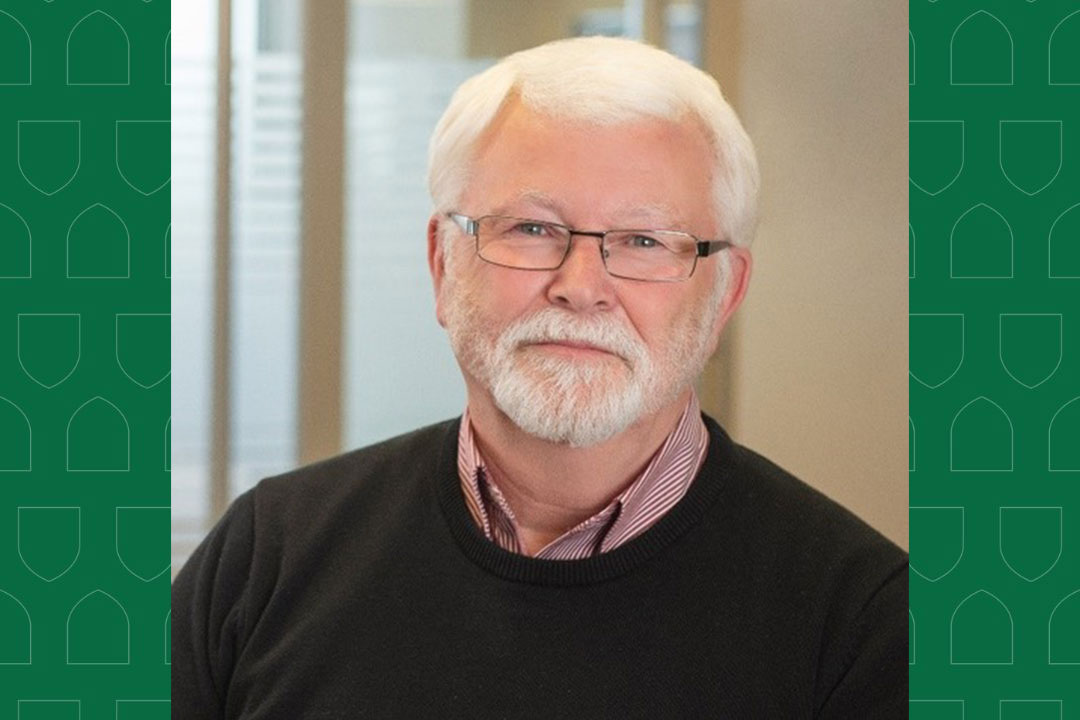
Engineer, businessperson, and longtime volunteer gives back to USask through Senate role
USask graduate Bruce Richet (BE’77) brings leadership experience, commitment to Reconciliation, and support for STEM to his work in the community
By SHANNON BOKLASCHUKUniversity of Saskatchewan (USask) alumni can give back to their alma mater by serving on the Senate, the governing body known as the “public voice” of USask that provides graduates, key stakeholders, and the larger community with a voice in university affairs. Comprised of 118 members, the Senate is part of USask’s tricameral governance structure, along with the Board of Governors and University Council.
University of Saskatchewan (USask) graduate Bruce Richet (BE’77) was nominated for the Senate in early 2023 and was elected as a member-at-large later that year. His term continues to June 30, 2026. Serving as a senator has been a positive experience for Richet, and he looks forward to the opportunity to become more involved through committee work.
“I have met individuals with backgrounds significantly different than my own and this has made for some very interesting sharing of diverse opinions,” he said. “I have had some very constructive interactions with USask leadership and governance specialists that have raised my interest in the strategic ‘why.’ ”
Richet earned a Bachelor of Science in Engineering degree, in civil engineering, at USask’s College of Engineering in 1977. He recently retired from a career that spanned more than 40 years and included progressively senior roles with three international consulting engineering firms, where he directed 550 staff in 16 offices in the areas of municipal infrastructure, development, planning, and technology systems. In 2011, he was the recipient of the Association of Consulting Engineering Companies – Saskatchewan (ACEC-SK) Lieutenant Governor’s Meritorious Achievement Award.
In 2015, the Saskatoon Regional Economic Development Authority (SREDA) initiated the annual Bruce Richet Award, which celebrates individuals for outstanding contributions and commitment to regional economic development. The award was named in Richet’s honour in recognition of his more than 20 years of service to SREDA, which included time as board chair.
As a community-minded leader, over the years Richet has helped guide the work of eight non-profit organizations and sports/club programs. This includes the elected roles of town councillor and mayor in the community of Dalmeny, as well as serving on the Briarwood Community Association for 12 years and as chair of the local/regional Planning Commission for 14 years. Richet is currently volunteering as the board treasurer for an organization that supports individuals with intellectual disabilities. He is also a board member with Engineers of Tomorrow, a national charitable organization that aims to raise awareness of the engineering profession.
Why did you want to become a USask senator?
I have always been interested in decision-making aspects of business, politics, and education, and this presented an opportunity to participate in and contribute to strategic governance as one of the three governance bodies directing the sustainable operations and growth of USask.
I felt that my 40-plus years of business success, a strong commitment to Treaty Rights and Reconciliation, and leadership positions with three Indigenous economic development initiatives would add value. This also allowed me an opportunity to give back to the institution that provided me with the tools to have a successful career.
You earned your Bachelor of Science in Engineering degree in 1977. What are some of your fondest memories of your time as a USask student?
Obtaining your degree in civil engineering in 1977 was not an easy task for an average student like me. A lot of time was spent with my nose in the books, but the 38 of us civils were a tight enough group to support each other through tough assignments—and many of us have kept in touch over the past 47 years.
How did your USask education inspire you to give back to your alma mater?
In recent years I thought about how unprepared we grads were for the wide world of engineering. I have had several opportunities to present about “life on the outside” to engineering students, with much of the response centred around transition awareness.
It was then that I connected with the College of Engineering Co-op Internship Program. After recent interaction with five mentor relationships, I knew I had to bring some knowledge to that transition process and I have made it a goal to raise awareness of STEM (science, technology, mathematics and engineering) to public, secondary, post-secondary, rural, Indigenous, and female students as a very valuable career consideration. That challenge is currently in full swing, with many local and national contacts expressing support.
The senate is described as “the university’s window on the province and the province’s window on the university.” What does this role mean to you?
In my mind “province” can be replaced with “community.” Community is a much broader term that aligns with “Be What The World Needs.” USask has and will continue to influence the economic and social standards here and around the world. We senators need to be in the know on what USask is strategically planning so that we can assist in its creation and then carrying forward that message effectively and enthusiastically.
Why would you encourage other USask alumni to join the senate?
The best way to influence has always been to be at the table, and that is true of the USask Senate. The governance process and critical debate can be utilized to bring a more enhanced value to your community. USask alumni are present in all aspects of the Saskatchewan community and if one feels a strong need to laud the benefits of the respected disciplines coming through the institution, you need to get involved in some way. The Senate is only one way to bring people’s reflections to the table. Get involved in making good decisions!


